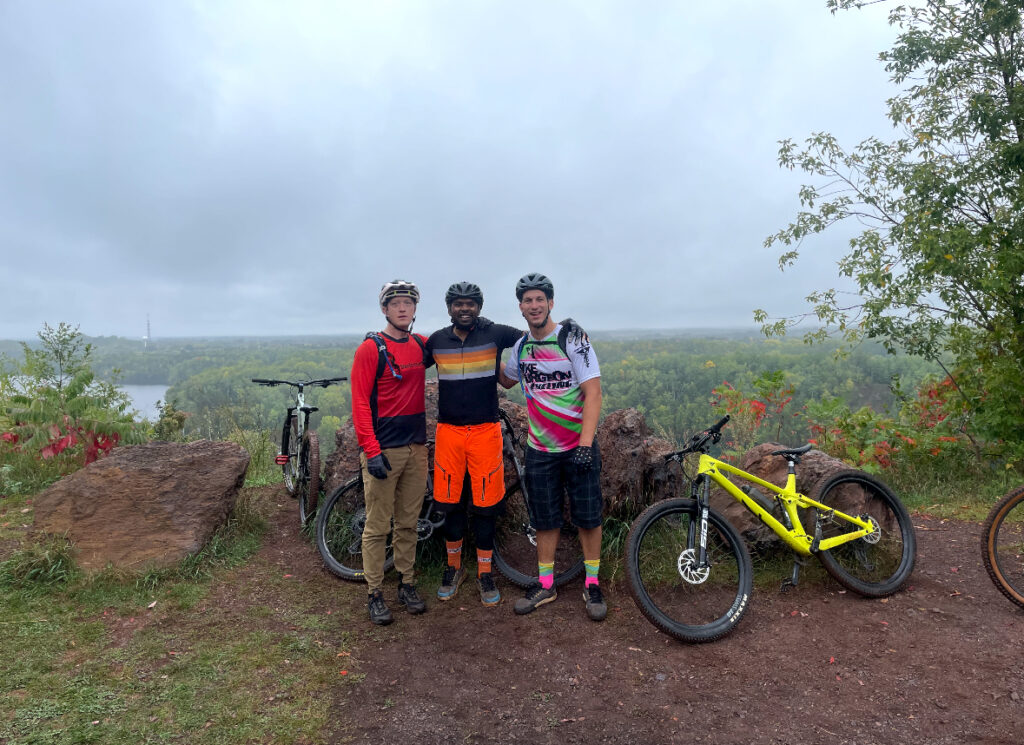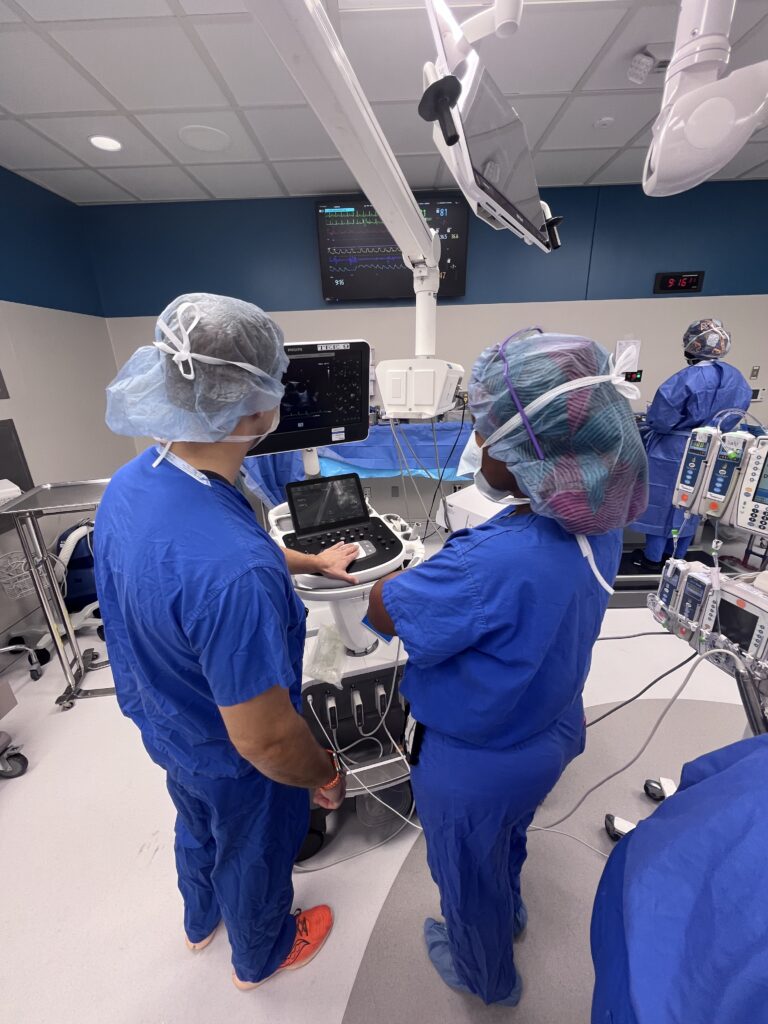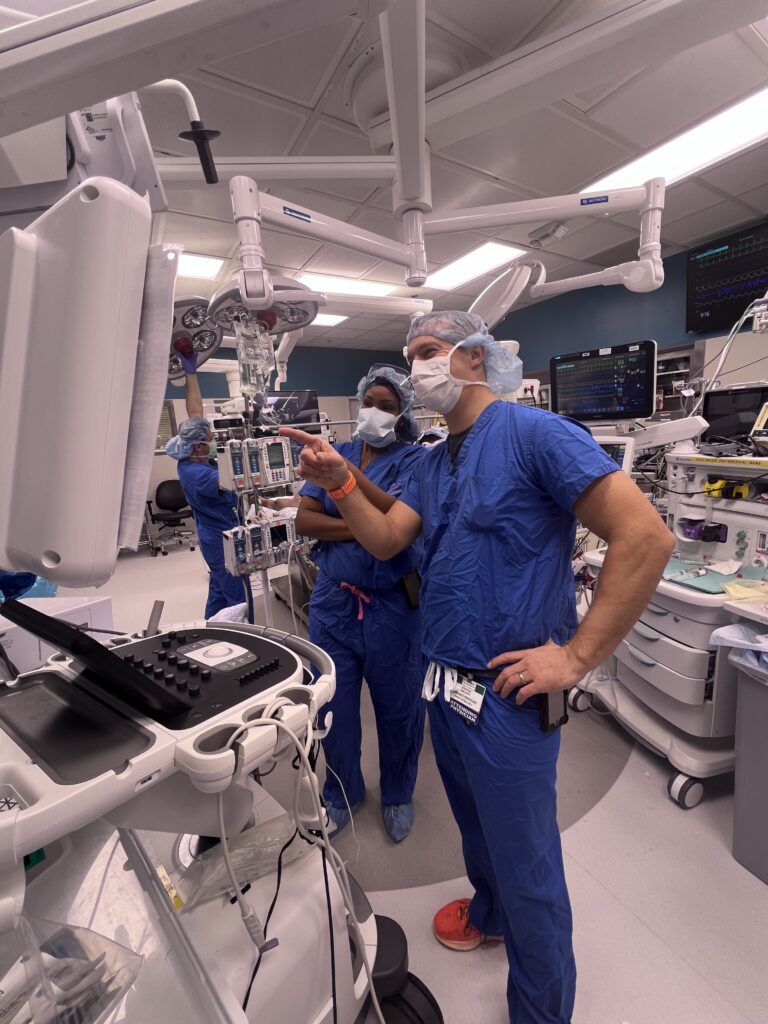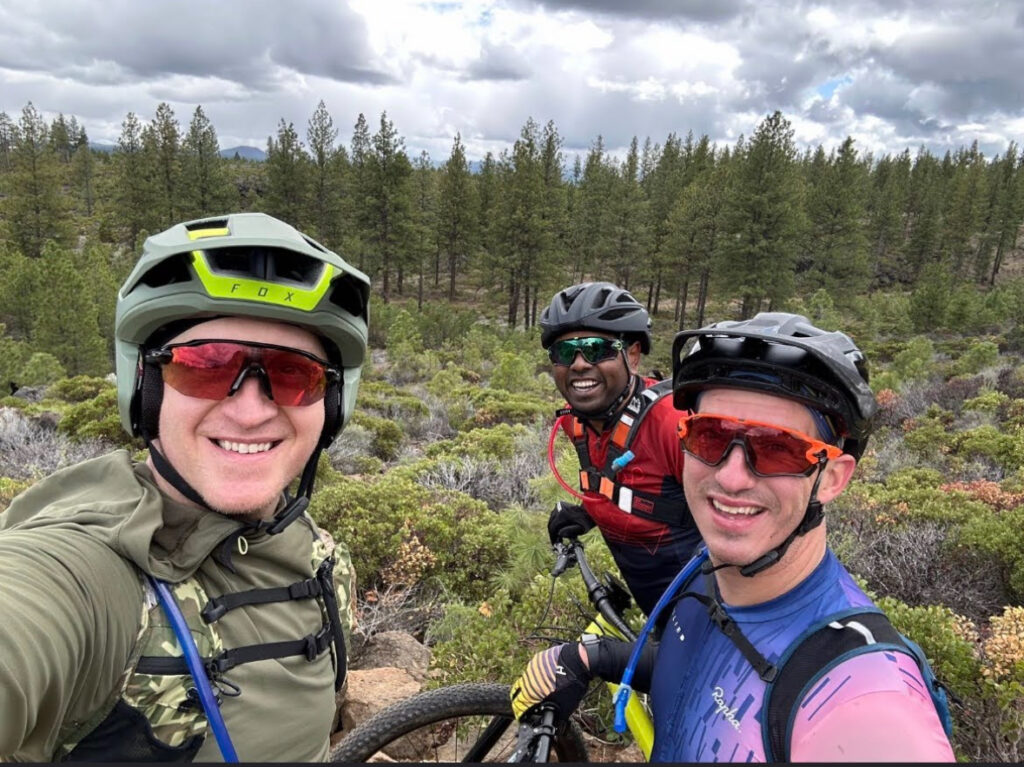The Well-being Word

Associate Vice-Chair of Well-Being
Hi friends,
Whether you are a New Year’s Resolution person or not, the start of a new year allows us all to reflect on the past, look forward to the future, and find ways to make positive changes in our lives. The new year serves as a significant time marker, and it provides us with a great opportunity to prioritize what we want to improve in the coming year.
When I develop and curate well-being programming, I often use the surgeon general’s guidelines for workplace well-being. These guidelines use evidence-based recommendations to establish comprehensive personal well-being in the workplace.
We have worked hard to ensure that we have programming options in each category available to WUDA members. My challenge to you this year is to find simple ways to engage in each of these categories of well-being. Take a few minutes and review the abundance of programming we have established to help you thrive personally and professionally! Remember, even small changes can make a BIG difference!
Here is to a healthy, happy, and joy-filled new year!
Yours in wellness,
Erin
Opportunity for Growth
Transparent career pathways, advancement opportunities, and diverse learning opportunities.
- Take a class and learn a new skill. (Check out the FAS team learning CPR this week!)
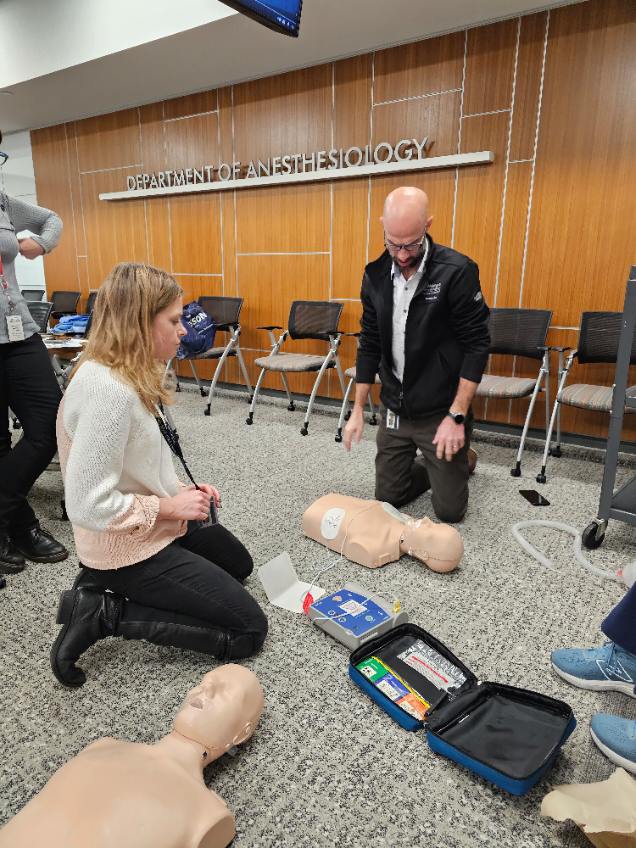
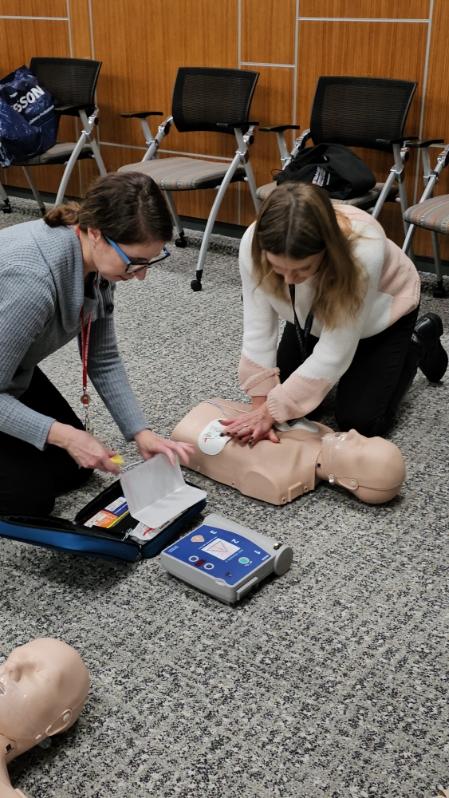
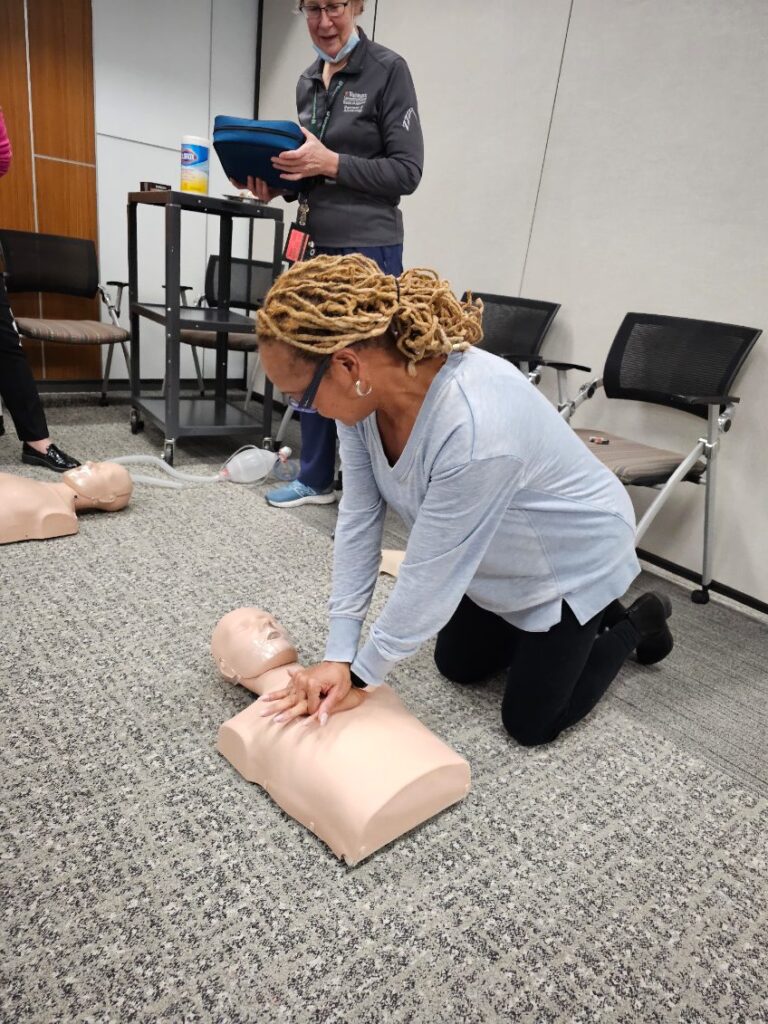
- Come to the Women of WUDA retreat—the theme for the retreat is “The Art of Balance: Finding Strength, Resilience and Professional Fulfillment.” Join us to hear some incredible speakers from around the country discuss this important theme and participate in some novel well-being activities!
- Take a professional development course.
- Take advantage of tuition assistance and take some free WashU School of Continuing & Professional Studies courses.
- Be ready for opportunities! You never know when an opportunity for advancement will arise! Is your CV up to date? Did you know WashU provides FREE services to help you develop your CV and career planning? Don’t let a chance for promotion or advancement catch you off guard—be ready!
- Faculty—have you checked out the new interfolio? Remember to keep your accomplishments and achievements up to date!
Connection and community
Cultivate relationships, foster collaboration and teamwork, and create cultures of belonging and support.
- Attend some of the many events happening across the department to cultivate community and socialization. Check out the pics below highlighting some of the events that brought folks together the past month!
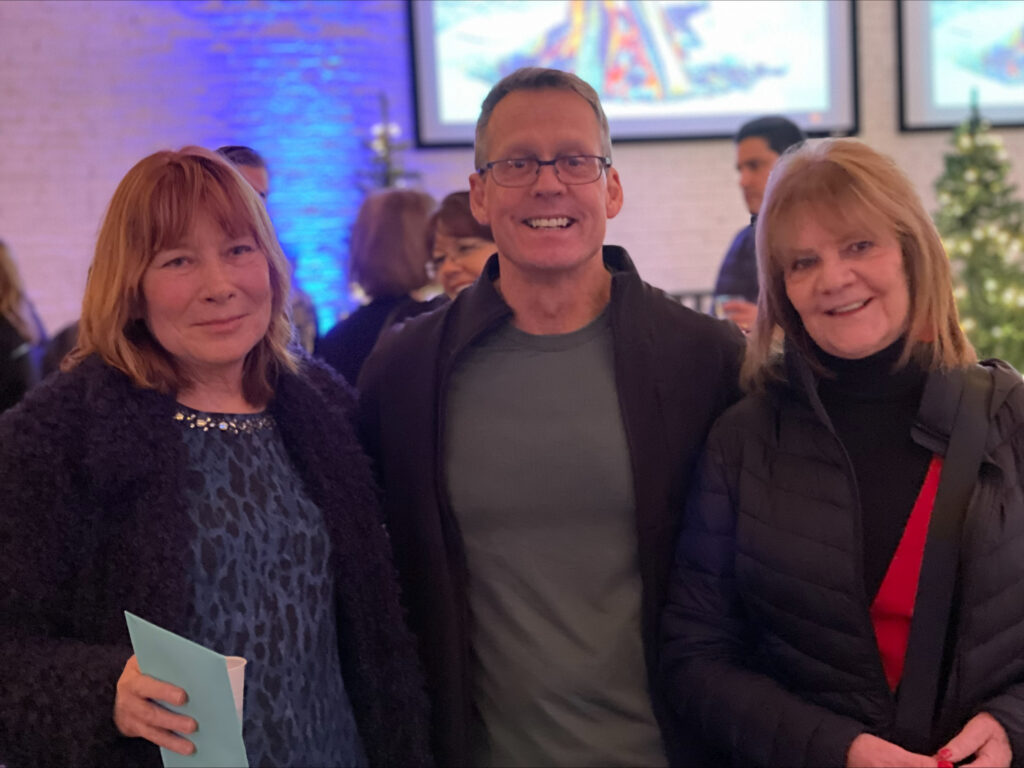
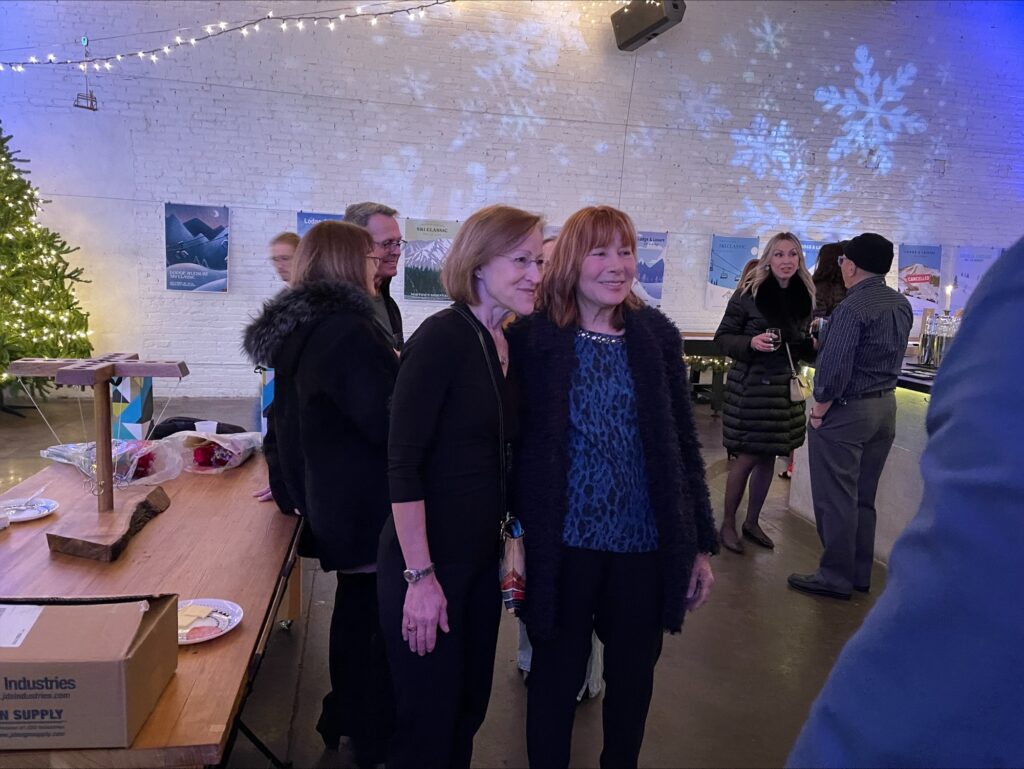
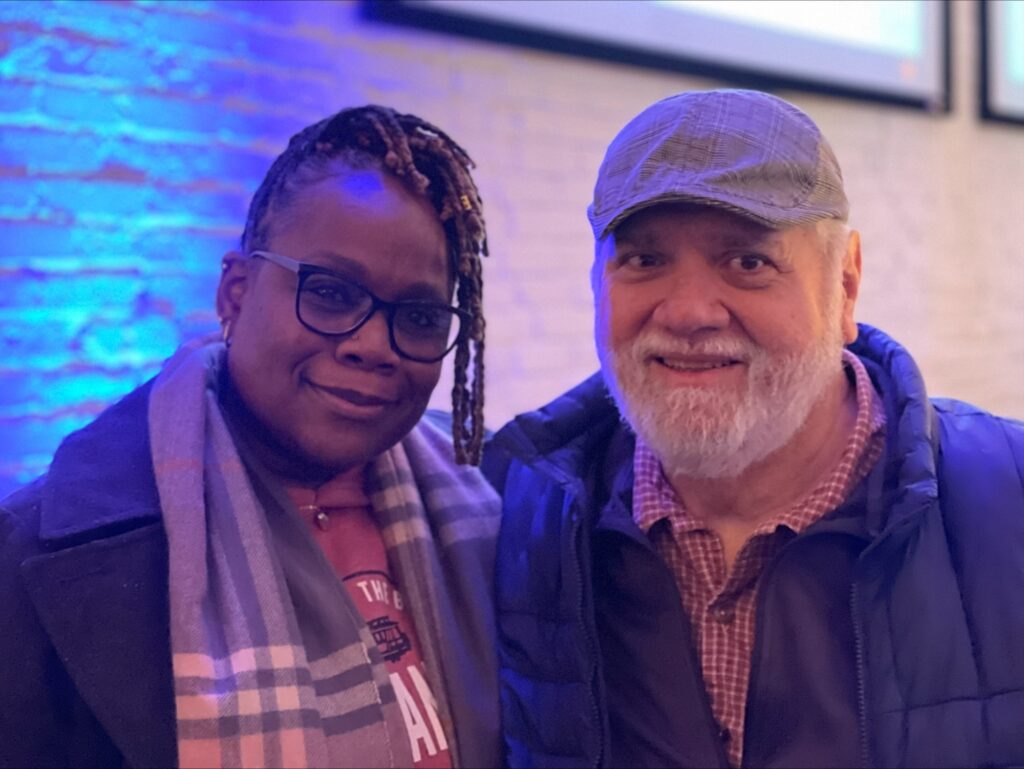
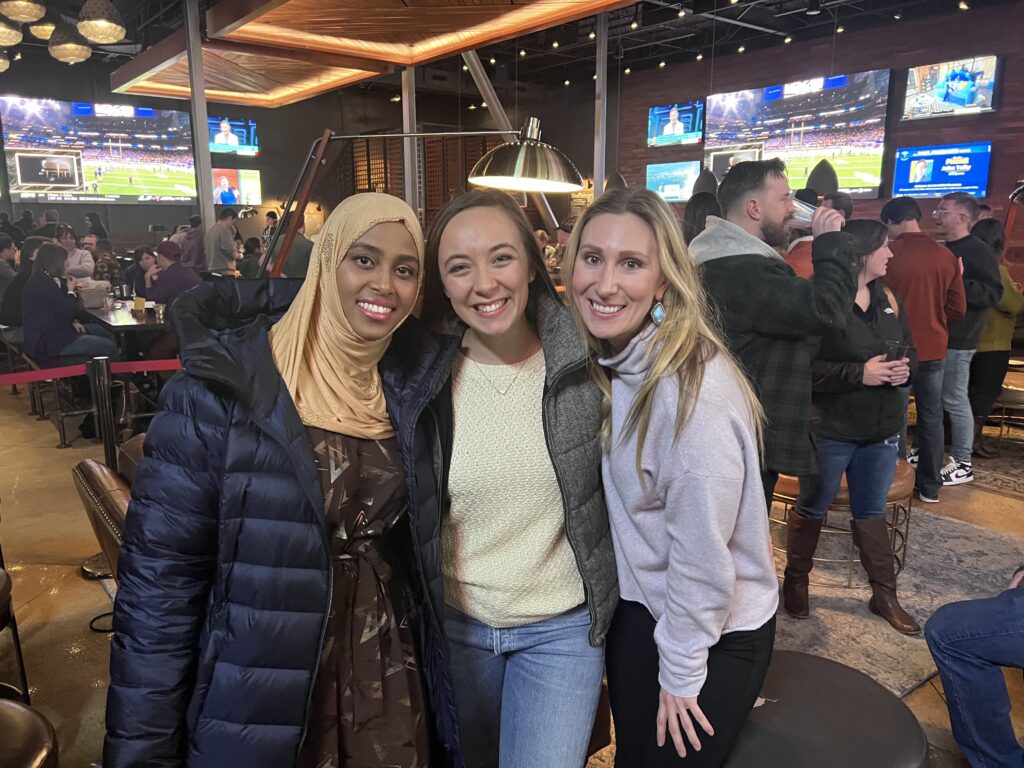
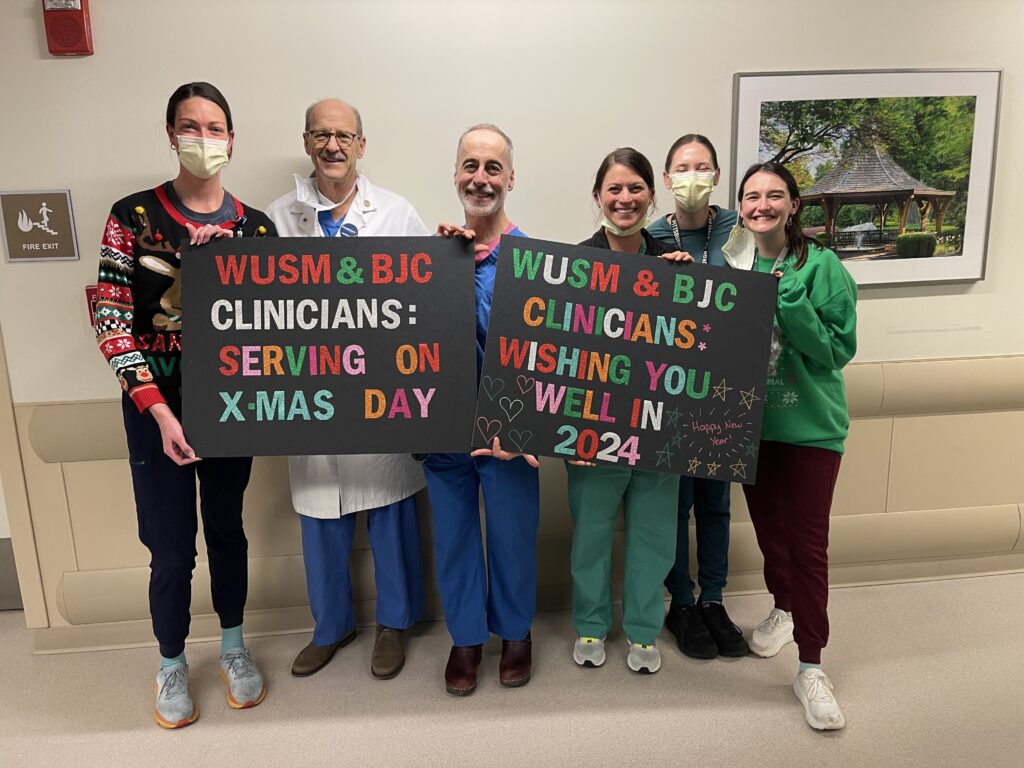
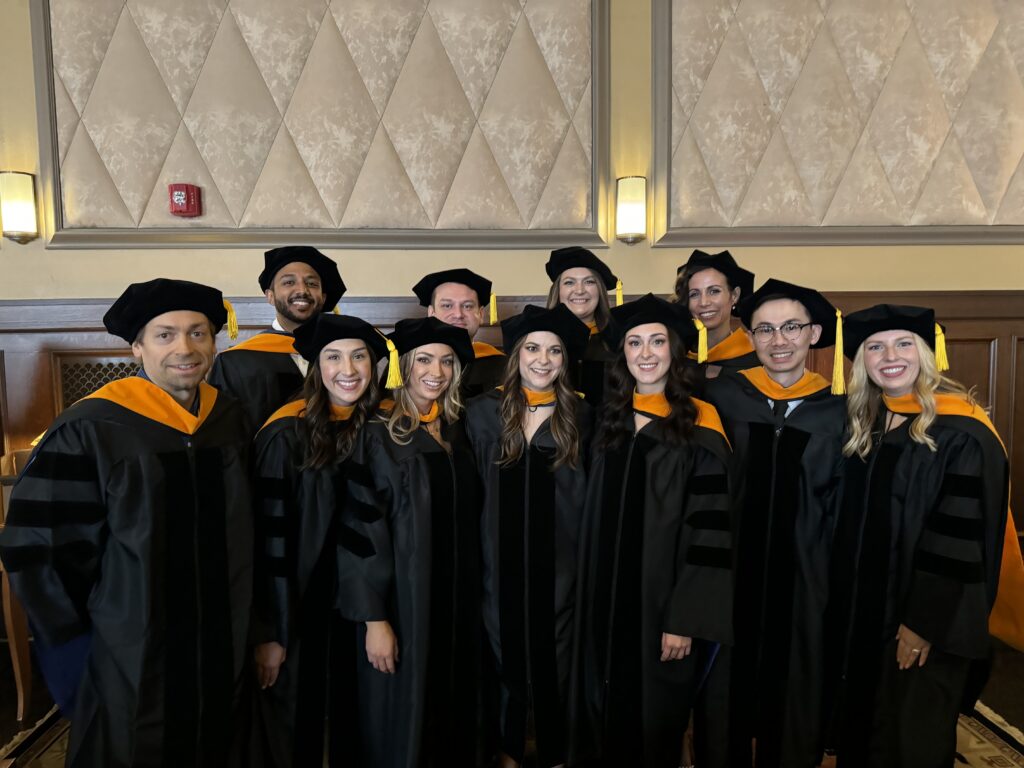
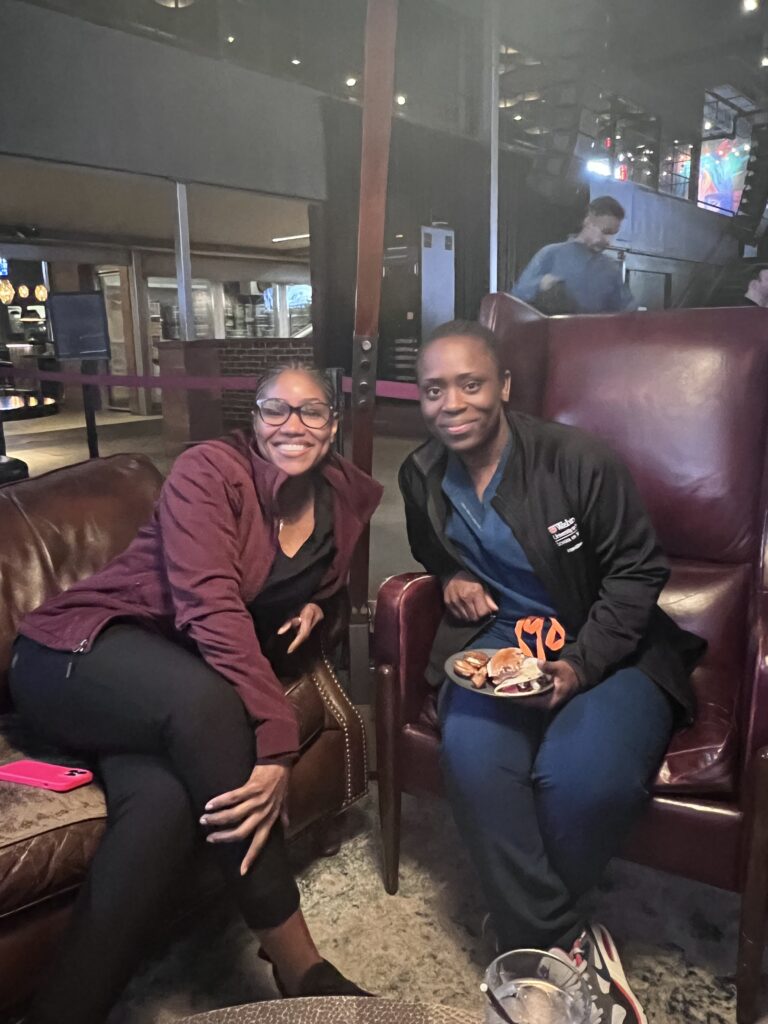
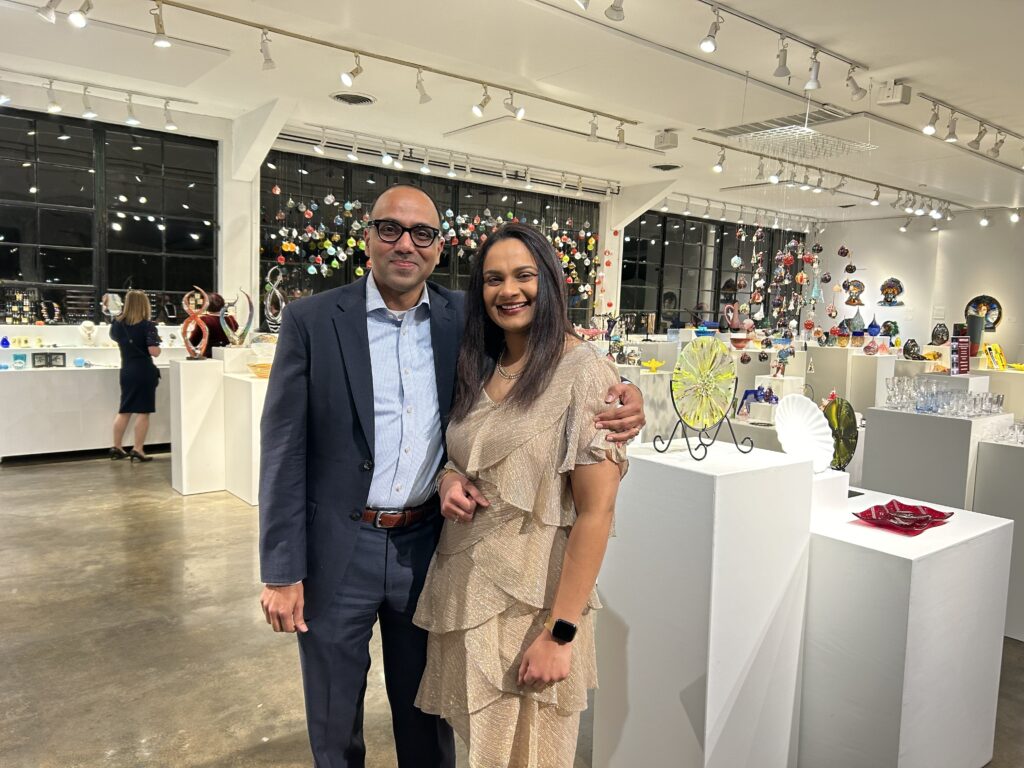
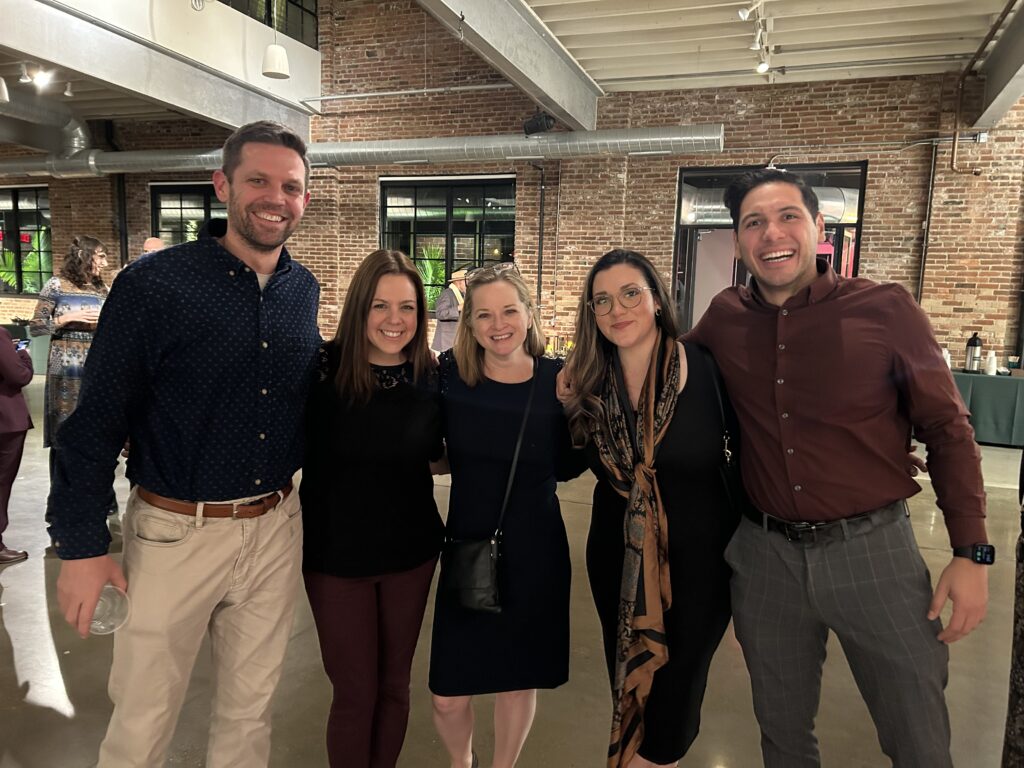
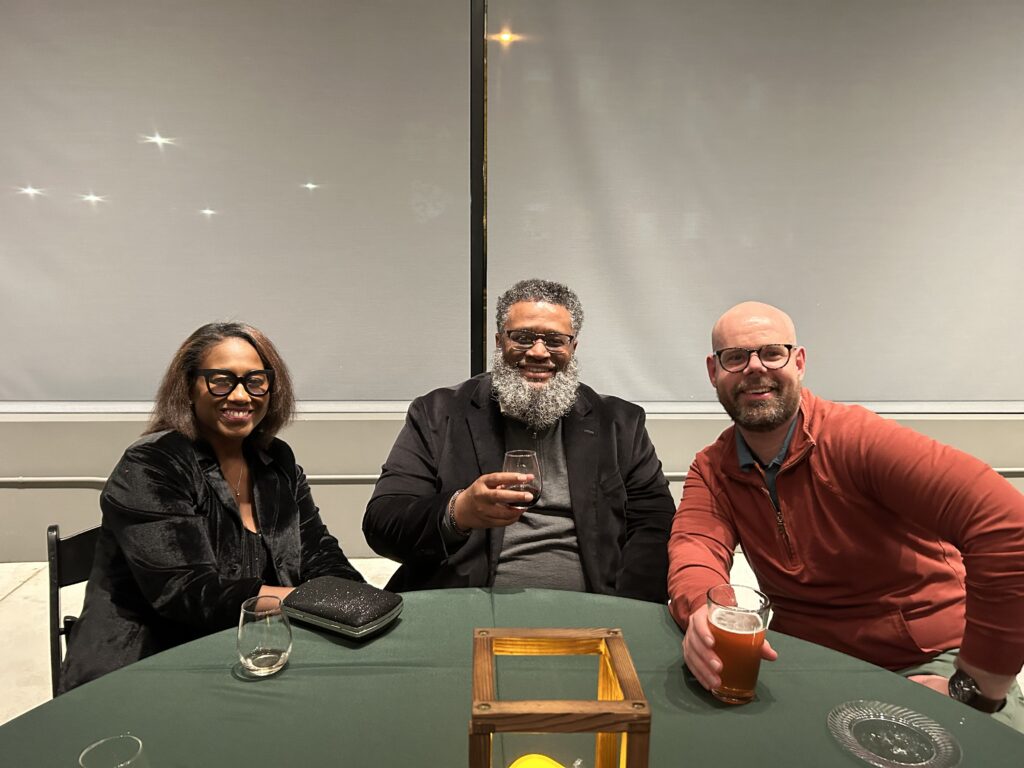
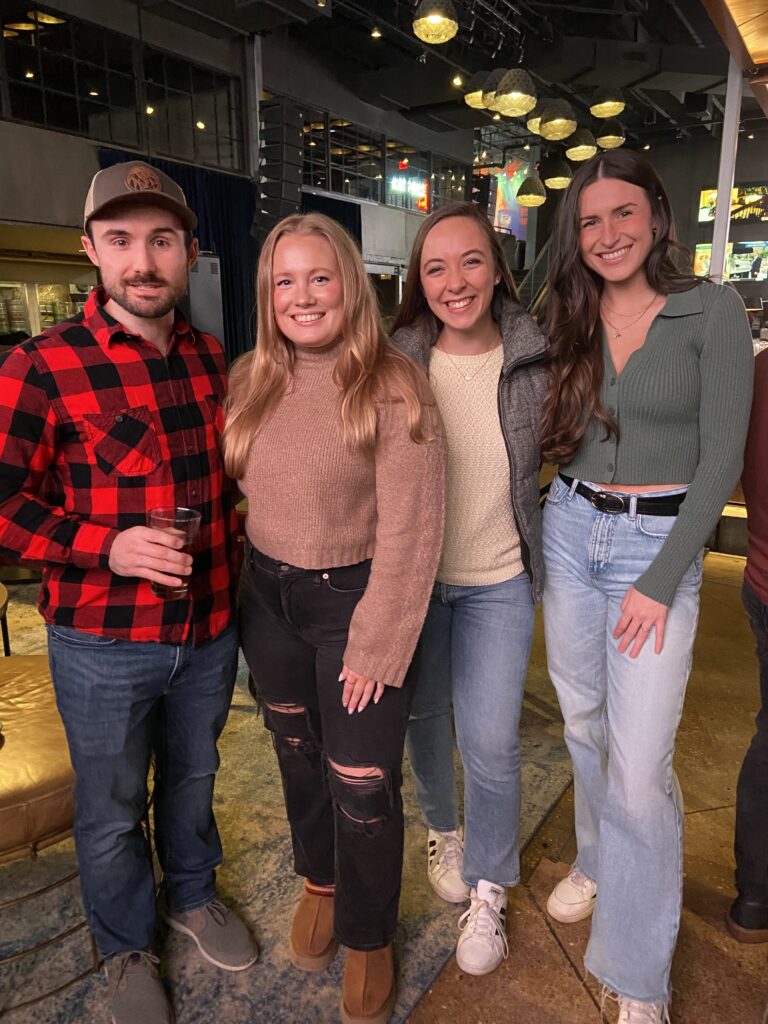

Mattering at Work
Building a culture of gratitude and recognition.
- Have you checked out the Take 2 system? This is a great platform to improve recognition and peer-to-peer gratitude. Nearly 500 Take 2s have been sent just here within WUDA! You can find the app on our departmental INTRAnet, making it accessible to everyone in the department. Using the app is a breeze —simply compose a thank-you note, and your heartfelt “Thank You!” will be sent directly to your colleague’s inbox.
Work-life harmony
Respect boundaries between work and non-work time.
- Check out the Well-developed Podcast on boundaries.
- Read a book from the new lending library on boundaries. The lending library will be up and running this month in the 2nd Floor Peters offices. Come check out a book, read one with a friend, and attend one of our upcoming book clubs. We will be stocking several copies of the Nedra Glover Tawwab book Set Boundaries, Find Peace. Check it out along with many other fabulous wellness-focused titles we will be stocking!
Protection from harm
Prioritize workplace physical and psychological safety, normalize mental health access, and operationalize DEI policies and programs.
- Join PIA SAFE—our next training is Feb 6, where we will be learning about peer support techniques with Dr. Doug Char.
- Listen to the Well-developed Podcast about improving the psychological safety of workspaces for trainees with guest Dr. Jenny Duncan.
- Commit to participating in the USR curriculum and learn about the critical importance of DEI efforts to make our department a safe, respectful place for all. Want to become more involved in DEI efforts? Please reach out to Dr. Enyo Ablordeppey.
- Take advantage of the many mental health resources here at WashU.
- Listen to the Well-developed Podcast featuring well-being-certified Architect Allision Johnson to learn how to make your home and work spaces more conducive to your health by using science-driven well-being certification techniques such as light, sound, and plants.
- Incorporate more movement into your workday by using one of our fitness spaces.
- Prioritize your sleep—download Calm and listen to the Well-developed Podcast with sleep specialist Alicia Ott.
A Day in the Life of Stephen Gregory, MD
Dr. Stephen Gregory currently serves as an assistant professor of anesthesiology in the Division of Cardiothoracic Anesthesiology and the Division of Perioperative Medicine. He is also the medical director of the Center for Preoperative Assessment and Planning (CPAP). Learn more about what a typical day is like for him at the preoperative assessment clinic.
I have served as the Division Chief of Perioperative Medicine here at Washington University since July 2022. In my role, I have a lot of variety in what my day looks like and I rarely have a truly “typical day.” My clinical work is split evenly between our Center for Preoperative Assessment and Planning (CPAP) and the cardiothoracic operating rooms at Barnes-Jewish Hospital. I also get to do a lot of other fun stuff: I’m the site PI for the THRIVE trial, I run the CPAP, I teach in the medical school, and I am involved in various health system initiatives around preop assessment… it’s cool.
For this “day in the life,” I decided to profile a typical day in our preoperative assessment clinic, where we do some really great work to get patients ready for surgery.
My typical day starts a little later than the ORs and I arrive at the hospital around 8 a.m. It’s a nice start to the day to be able to see my wife and kids for a little while before I head in. I spend a few minutes checking in with our nursing leadership to see if any major operational issues have come up that need to be addressed, and then I settle into clinic. I normally have a senior resident in clinic with me who helps with decision-making and assists our anesthesiology interns.
The first hour of my day is typically spent discussing follow-up issues from the previous clinic day: abnormal labs, records retrieved from outside hospitals, patient phone calls, etc. I also try to fit in some educational time for our residents rotating in clinic. It is uncommon in anesthesiology to have actual downtime to do structured teaching, so I try to do it when I’m there. Sometimes we discuss preoperative assessment topics and sometimes I share my musings on professional life and anesthesia, which they act like they enjoy. It’s also a great place to get to know our residents outside of a busy OR day.
Once clinic really starts to pick up, our nurse practitioners and residents will start coming in to discuss cases with me. I will typically hear about anywhere from 20-50 patients in a shift in addition to laboratory and record reviews that will continue to filter throughout the day. There is also a lot of discussion with surgeons and other anesthesiology leaders about case management and site candidacy that we work through.
My day typically wraps up around 6-6:30 p.m. and I make my way back home to Illinois. I am a native Southern Illinoisan, so I live on the other side of the river, but it’s only a 25-minute ride home. When the weather is nice and the sun stays out late, I like to hop on my bike and go ride the country roads by my house or out into St. Louis on the local mountain bike trails. Since its January, I’ve been spending more time playing basketball at the YMCA and riding on the trainer in the basement. And playing video games.
I love my job at WashU and the incredible variety that it provides. I get to take care of complex patients, work with great colleagues, and work on interesting operational and research projects. Thanks for reading!
